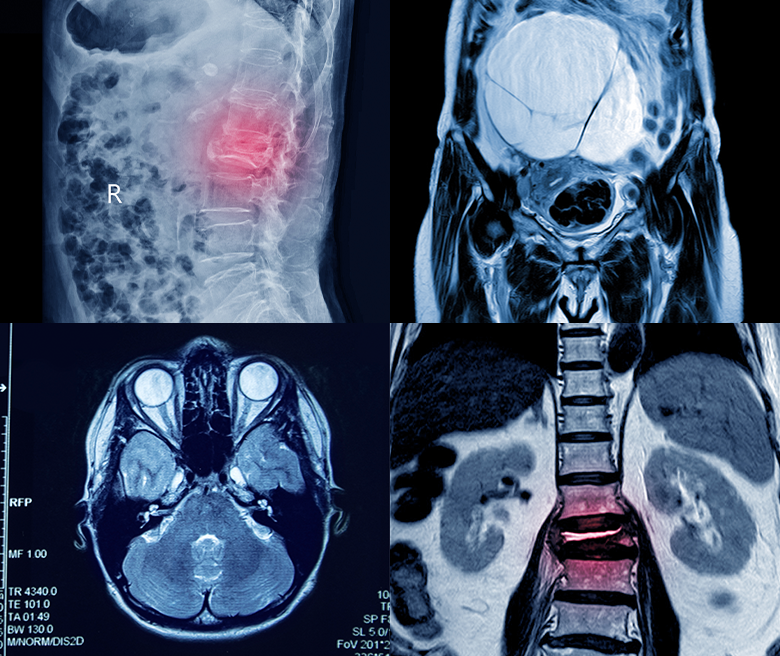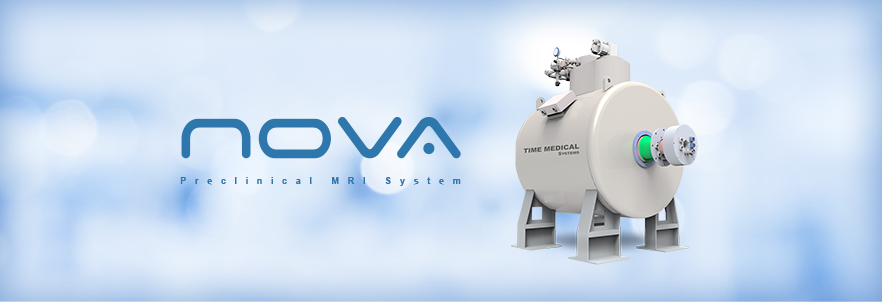The Pioneer who brought HTS Coil Technology to the Clinical MRI Market
MRI technology has relied upon higher magnetic field strengths to achieve a higher Signal-to-Noise Ratio (SNR) in the MR Image for the past 30 years. This approach ended because of the need for new cost containment strategies and regulatory constraints placed on main magnetic field strengths.
Overcoming the dominant source of noise in an MR Image remains the key challenge. The loss of SNR from the RF coil is large – when compared with losses from the anatomic sample itself, particularly for parallel imaging where RF array coils are used. If RF coils can be optimized to reduce coil loss, they can greatly improve the SNR.


High Temperature Superconducting (HTS) materials, coils and methods are the ideal to improving SNR. HTS coils deliver increased SNR to MR images primarily with more efficient RF coil materials and design methods, specifically liquid nitrogen-cooled RF coils made from materials such as YiBaCuO and BiSrTiCaO. Compared to traditional Copper RF Coils, the HTS coils have demonstrated SNR gains of 50% , 100%, 200% and up to 500% for multi nuclei imaging studies. This innovative approach to increasing SNR can provide image quality benefits across routine & advanced clinical applications and can be applied using low, high, or ultra-high field MRI scanners. HTS coils can easily be tuned to different frequencies, allowing for hydrogen, sodium, phosphorus, or other clinically useful nuclei to be imaged. Professor Q. Y. Ma, PhD (Founder of Time Medical Systems) developed HTS Coil Technology in the late 1990’s, together with the R&D team he led at Columbia University, New York, USA.
Time Medical Systems are the first commercial entity to bring HTS Coil Technology to the clinical MRI market. The HTS program is driven by an experienced team of multi-disciplinary scientists, engineers and clinical MRI experts – focused on delivering a range of application-specific HTS coils including Brain, Spine, Body, Knee, Shoulder, Wrist & TMJ. HTS coils will enhance the performance of Time Medical System’s own portfolio of low-cost, high-performance MRI scanners and will soon be available to many of the healthcare industry’s 22,000 MRI scanners installed throughout the world.
High Temperature Superconducting (HTS) materials, coils and methods are the ideal to improving SNR. HTS coils deliver increased SNR to MR images primarily with more efficient RF coil materials and design methods, specifically liquid nitrogen-cooled RF coils made from materials such as YiBaCuO and BiSrTiCaO. Compared to traditional Copper RF Coils, the HTS coils have demonstrated SNR gains of 50% , 100%, 200% and up to 500% for multi nuclei imaging studies. This innovative approach to increasing SNR can provide image quality benefits across routine & advanced clinical applications and can be applied using low, high, or ultra-high field MRI scanners. HTS coils can easily be tuned to different frequencies, allowing for hydrogen, sodium, phosphorus, or other clinically useful nuclei to be imaged. Professor Q. Y. Ma, PhD (Founder of Time Medical Systems) developed HTS Coil Technology in the late 1990’s, together with the R&D team he led at Columbia University, New York, USA.
Time Medical Systems are the first commercial entity to bring HTS Coil Technology to the clinical MRI market. The HTS program is driven by an experienced team of multi-disciplinary scientists, engineers and clinical MRI experts – focused on delivering a range of application-specific HTS coils including Brain, Spine, Body, Knee, Shoulder, Wrist & TMJ. HTS coils will enhance the performance of Time Medical System’s own portfolio of low-cost, high-performance MRI scanners and will soon be available to many of the healthcare industry’s 22,000 MRI scanners installed throughout the world.




